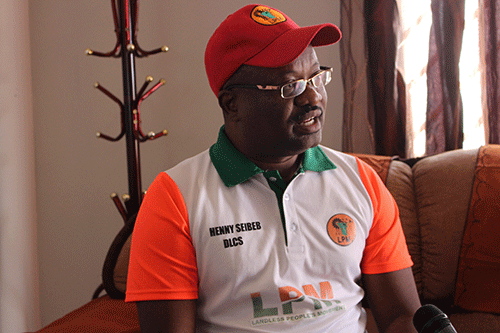Popular Democratic Movement’s Kazeongere Tjeundo has tabled a motion for parliament to discuss and seek redress to the high levels of multidimensional poverty recorded in the five regions.
He tabled the motion last Thursday, where he indicated Kavango West and East, Kunene, Zambezi and Ohangwena regions have recorded the highest level of multidimensional poverty according to a report released by Namibia Statistics Agency (NSA).
According to him, the incidences of multidimensional poverty were recorded highest in Kavango West (79.6%), Kavango East (70.0%) Kunene (64.1%), Zambezi (60.7%) and Ohangwena (56.6%1).
“It is, therefore, incumbent upon us as legislators to honestly and critically dissect the issue of abject poverty in the Kavango West, Zambezi, Ohangwena, Kavango East and Kunene regions. Article 63 of the Namibian Constitution assigns to the members of the National Assembly several mandates,” he urged.
He added the same regions are indicated to have the highest rate of child poverty in Namibia, Kavango West (82.3%), Kavango East (74.7%), Kunene (69.2%), Zambezi (66.2%) and Ohangwena (64.1%).
According to the parliamentarian, the high child poverty rates in these five respective regions is a reflection of the high school dropout rates that have been recorded over the years in those regions.
“The education ministry indicated that out of the more than 30 000 pupils that dropped out of school during the 2020 academic year, the significant portion of them came from the five regions in question,” he said.
He emphasised that if parliament addresses the complex nature of multidimensional poverty in those five regions, it will necessitate several interventions, which are unique to each region and multifaceted.
“In other words, the dynamics and factors that have led to these high levels of multidimensional poverty in each of these regions required that the solutions adopted to solve those high levels must be fitted to the dynamics of that particular region,” Tjeundo said.
He added that the veterinary cordon fence (Red Line) also excludes livestock farmers from the Kunene region from the mainstream beef economy of the country.
“Hence, it is about time that interventions are undertaken to address the issue of the Red Line to include livestock farmers from the Kunene region into the mainstream beef economy and inevitably, address the structural poverty experienced in the region.
He said the Kavango West and East regions are the poorest regions in Namibia due to a lack of tangible investment and unsustainable agricultural practices.
“In terms of challenges relating to governance, there seems to be a clear prevalence of maladministration and corruption happening at both the regional council and local authority structures of both the Kavango West and Kavango East regions. This deficit in good governance had a tremendous effect that needs to be addressed within these two regions. Hence when we attempt to address systemic poverty in the two regions, the deficit in good governance within the two regions must be addressed first,” he advised.
Furthermore, he indicated the Kavango West and East regions are predominantly agriculturally driven societies, with the vast majority of the inhabitants surviving through subsistence crop farming.


